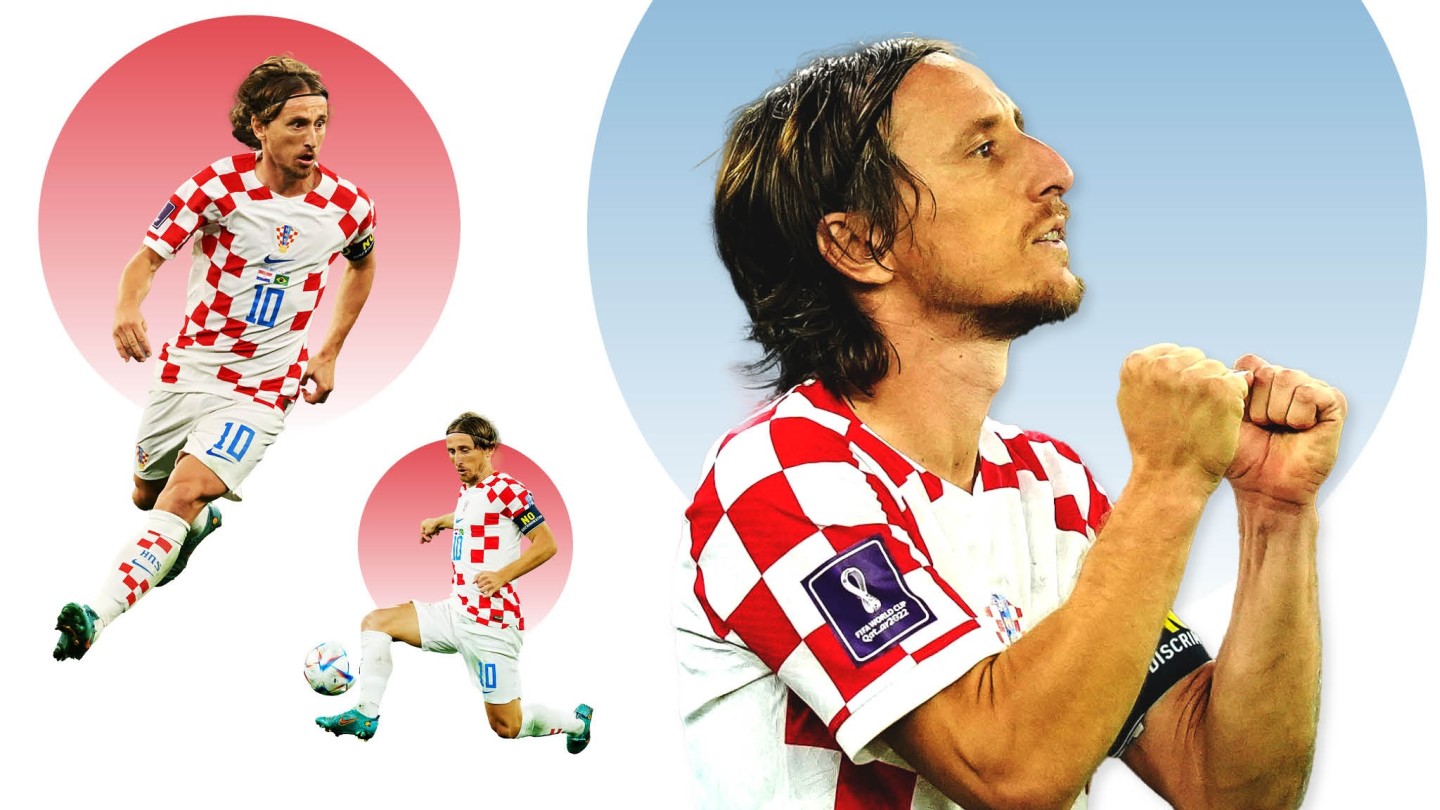Luka Modrić: the maestro driving Croatia into a second World Cup semi-final

Straight after Croatia beat Brazil on penalties, their 37-year-old captain Luka Modrić was consoling a Brazilian who had missed his kick: his Real Madrid teammate Rodrygo, 21. In March, Rodrygo had jokily wished Modrić “Happy Father’s day”.
Modrić hugged the lad, saying, “This will make you stronger. Everyone makes mistakes. I love you.” Then, after consoling some more Brazilians, the little man walked off to prepare for Tuesday’s semi-final against Argentina. If he can lead his country to a second consecutive World Cup final, and this time win it, the former refugee would have achieved possibly the most remarkable victory in the tournament’s history considering Croatia only has 3.9mn inhabitants. After all, football is more globally competitive now than when little Uruguay won World Cups in 1930 and 1950.
Modrić was born in 1985 in Zadar on the Dalmatian coast, possibly the world’s most fertile region for footballers. His happy childhood in the mountain village of Modrići was wrecked six years later by the Yugoslav wars. Serbs killed his beloved grandfather, something Modrić still struggles to talk about. His family lived as refugees in hotels, listening to bombs fall. He learnt to play football on Hotel Kolovare’s tarmac forecourt. “Football was definitely a way out of everything going on around us,” he told Captains, the documentary released in October by Fifa, world football’s governing body.
When he moved from Croatia’s Dinamo Zagreb to Tottenham Hotspur in 2008, many expected England’s Premier League to crush the 1.72-metre maestro who looked like a washerwoman. But in football, counter-intuitively, small is beautiful. A little player — see also Argentina’s Leo Messi — learns to move the ball on before big opponents come flying in. With shorter steps, he can turn and accelerate faster.
In 2012, Modrić graduated to Real Madrid. Winning one Champions League is hard. Modrić has won five in Madrid. For years, he, Toni Kroos and Casemiro (with whom he swapped shirts after the quarter final shootout) formed football’s savviest midfield. Thanks to his near-perfect technique, Modrić can receive passes even when surrounded by opponents, scan the field rather than looking down at the ball, and take what Latins call a “pausa” before passing. His physical trainer, Vlatko Vucetic, explains: “He sees three or four different solutions, his brain spontaneously analyses the situation of many players around him, and then he quickly makes a decision.” Modrić’s mastery of the outside of the right boot makes him effectively three-footed. “He’s very easy to play with,” says compatriot Lovro Majer.

In 2018, Croatia reached the World Cup final against France, losing 4-2. In constant motion so always to be near the ball, Modrić was named player of the tournament. The team flew home straight into controversy, when they celebrated at a concert with the extreme nationalist singer Thompson, whose nickname comes from the submachine gun. Off the field as on it, Modrić is surrounded by aggressive people, and he twists away from confrontation.
Named the world’s best player that year, he seemed more frightened of receiving his award on stage in Paris than playing in a World Cup final. “I have sensational emotions at the moment that is hard to describe with words,” he droned in apparently memorised English, sounding like a bad internet translation engine. The most touching moment came, on video, from his father. Told that his son had won football’s biggest individual prize, he clasped his hands as if in prayer, mumbled “You are my genius”, then wept.
Like Messi, Modrić has become a more vocal leader with age. The Fifa documentary shows him on a sofa lecturing another Zadar boy, Croatia’s then reserve keeper Dominik Livaković: “I wouldn’t tell you this if I didn’t care about you. But I can’t see your progress. Maybe you can’t handle pressure? You make the team insecure. My feeling tells me you’re afraid to make mistakes, but what does it matter if you make a mistake? Everybody does.”

Livaković is now Croatia’s starting keeper. After he stopped three penalties in the shootout against Japan, Modrić blessed him with a kiss on the forehead. Against Brazil, Livaković again rescued the Vatreni with 11 saves. The oldest team at a World Cup since France in 2006, Croatia rely on their keeper because their attack is fairly toothless. Of six knockout games here and in the 2018 tournament, they have lost one, won one in extra time, and four on shoot-outs. This isn’t only luck: the Vatreni seem impregnated with Modrić’s imperturbability.
He played the full 120 minutes against Brazil, doing the tireless defensive work that Messi and Cristiano Ronaldo, also 37, gave up years ago. “There’s no place for him to rest, because we need him every second,” said left-back Borna Sosa. Modrić claims to feel fine during games, perhaps thanks to his intense physical regime. In Madrid he generally gets to the training ground before breakfast, though he does allow himself a post-match beer or two. He even quipped recently about playing till 50.
“I live for football almost 24 hours a day,” he says. But even that doesn’t begin to explain his feats, or Croatia’s.
Comments